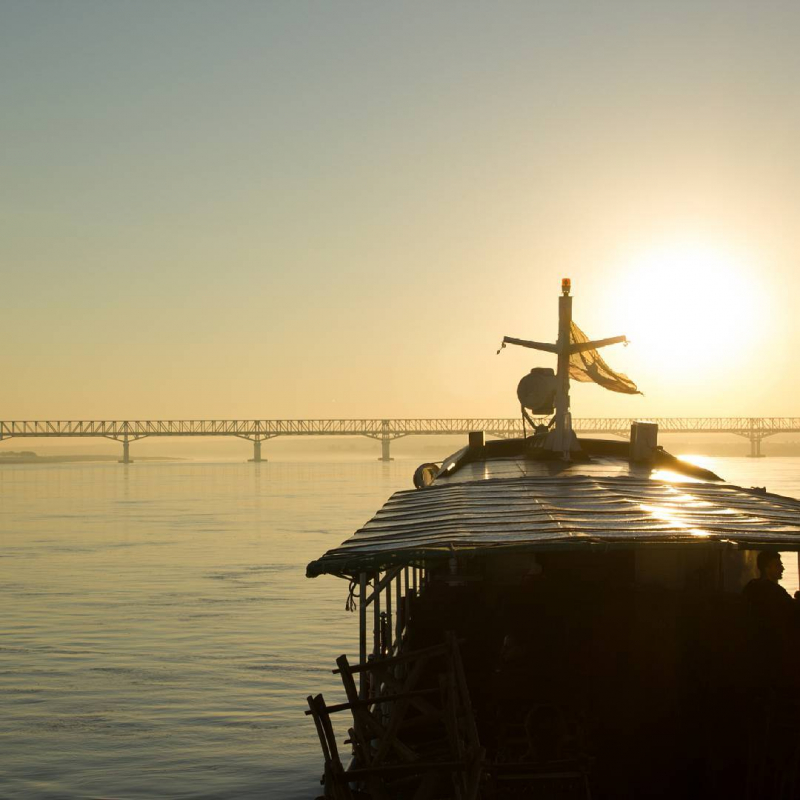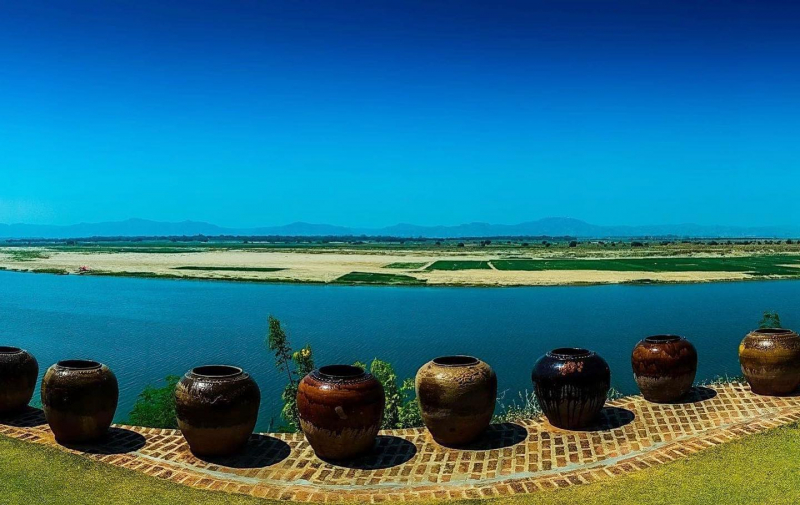Irrawaddy

The Irrawaddy is a river in Myanmar that travels from north to south (Burma). It is the largest river in the country and the most important commercial waterway. It rises at the junction of the N'mai and Mali rivers and travels north-south before draining into the Andaman Sea through the Irrawaddy Delta in the Ayeyarwady Region. Its 404,200-square-kilometer drainage basin encompasses a substantial portion of Burma. It is sometimes referred to as 'The Road to Mandalay' after Rudyard Kipling's poem.
The river has been used for trade and transportation since the sixth century. After the British Empire colonized Burma, the river became vital to the British Empire because of its enormous network of irrigation canals. The river is still important today, as it transports a significant amount of commodities and traffic. Rice is grown in the Irrawaddy Delta and irrigated with river water.
The term "Irrawaddy" comes from the Pali language. In Hinduism, the elephant mount of Sakka and Indra is known as Irvat or Airvat. Elephants were commonly employed as a metaphor for water in Buddhism, and the name Saka was used for several other rivers, including the Achiravati.
Total length: 1,348 miles










